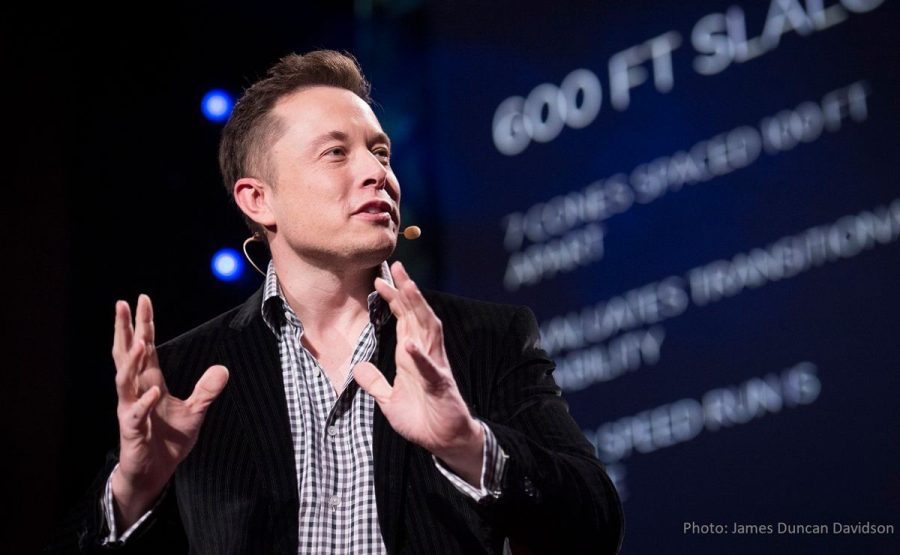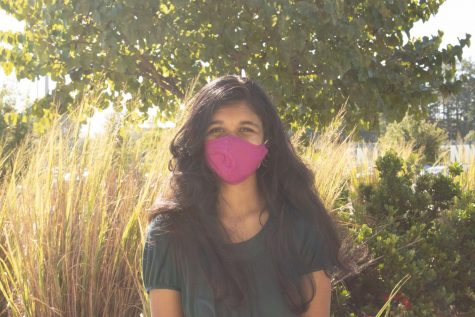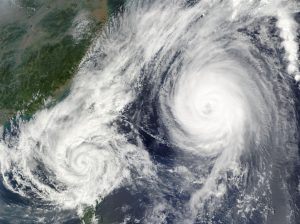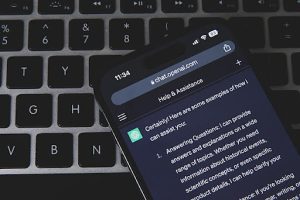The World’s Richest Man Now Owns Twitter
Elon Musk has acquired one of the most influential social media companies in the world. Image courtesy James Duncan Davidson.
April 29, 2022
On Monday, April 25th, Twitter Inc. stated that it would be selling itself to Elon Musk, CEO of Tesla Motors and SpaceX, for around 44 billion dollars—putting the world’s richest man in charge of one of the most influential social media platforms.
The deal follows a plethora of events in the last month in which Musk became one of Twitter’s largest shareholders before being offered and turning down a seat on the board and then bid to buy the company.
Now, the company is set to go private and under the terms of the deal, each shareholder will receive $54.20 in cash for every share of Twitter stock they own, which matches Musk’s original offer.
Musk dubbed himself a “free speech absolutist” and has criticized Twitter moderation through this lens. Political activists predict that Musk’s “regime” will call for less moderation and the reinstatement of previously banned individuals, such as former President Donald Trump. While many conservatives celebrated the likelihood of less control, human rights activists fear the surge of hate speech without as much regulation.
“Free speech is the bedrock of a functioning democracy, and Twitter is the digital town square where matters vital to the future of humanity are debated,” said Musk in a statement on Monday. “Twitter has tremendous potential—I look forward to working with the company and the community of users to unlock it.”
🚀💫♥️ Yesss!!! ♥️💫🚀 pic.twitter.com/0T9HzUHuh6
— Elon Musk (@elonmusk) April 25, 2022
Former Twitter CEO Jack Dorsey took to Twitter to offer his own sentiments regarding the deal, thanking both Musk and current Twitter CEO Parag Agrawal in a series of tweets for “getting the company out of an impossible situation.” He said, “Twitter as a company has always been my sole issue and my biggest regret. It has been owned by Wall Street and the ad model. Taking it back from Wall Street is the correct first step.”
The idea and service is all that matters to me, and I will do whatever it takes to protect both. Twitter as a company has always been my sole issue and my biggest regret. It has been owned by Wall Street and the ad model. Taking it back from Wall Street is the correct first step.
— jack⚡️ (@jack) April 26, 2022
Musk, having more than 85 million followers on Twitter, began collecting shares in the company as early as January this year. He disclosed a 9% stake in the company earlier this month, which got him an invitation to join Twitter’s board, an offer that he ultimately declined.
Musk included in his statement on Monday that he wanted to “make Twitter better than ever by enhancing the product with new features, making the algorithms open source to increase trust, defeating the spam bots, and authenticating all humans.” He said in a separate tweet that he hopes “even my worst critics remain on Twitter, because that is what free speech means.”
Twitter, despite being a social media platform, is one of the most important sources of news for a majority of its U.S. users according to Pew Research Center—which is exactly what is likely the main selling point for Musk.
“His purchase of Twitter to take it private makes an essential service even less transparent and more unaccountable,” said Adam Connor, who is a former Facebook employee and vice president for technology policy at the Center for American Progress. “Musk’s Twitter takeover is a flashing red light on why the centralization of our online spaces in the hands of a select few billionaires is so dangerous.”







